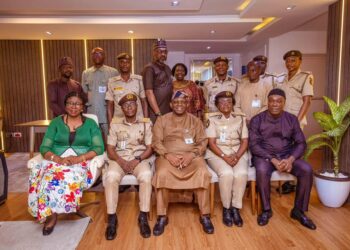“Please, I need a job on board, even though, I have no experience or qualification, I am a graduate and I have obtained a discharge book, please help me sir.” This was an extract of a message that was sent to our box by an unknown Nigerian who claimed to be resident in Lagos. This young man, whom we later met indeed, has all the documents that a qualified sailor should have. He is probably on board any of the fishing trawlers or tankers that are involved in Cabotage trade in Nigeria.
It first started like a fairy tale, almost unbelievable, but it has turned out to be more correct than it was in November, 2008 when this newspaper first broke the story that untrained and uncertified individuals who parade as seafarers have penetrated the nation’s sensitive maritime industry.
Worst still, while trained seafarers roam the streets of Apapa (in Lagos) and other ‘maritime cities’ in search of sea time experience, the powerful syndicate which engage the fakes do corner available jobs for their candidates and allow them take charge of positions on Nigerian ships.
Most affected are tankers and fishing trawlers which operate on Nigerian waters. Evidences abound that many Nigerian-flagged tankers have either wittingly or otherwise engaged fakes.
The media have in the past also raised alarm over the engagement of ‘illiterate seafarers’; majority of whom never had any formal training in seamanship. While some of those who board ships in the Niger Delta have informal, but crude knowledge of basic seamanship, majority (if not all) of those who have acquired forged documents; including the all-important Seaman’s Record Book and Certificate of Discharge with which they are now ‘proud seafarers’ have never had any formal or informal training in marine engineering or nautical sciences.
Experts have also pointed out that while the menace was more prevalent when the office of the Government Inspector of Shipping (GIS) was in charge of certificates, the syndicates have also beaten the tight obstacles that have been put in place by the Nig3erian Maritime Administration and Safety Agency (NIMASA). They explained that since the merger of the GIS with the then – National Maritime Authority (NMA), there appeared to be some level of checks.
Another worrisome dimension is that some Nigerians claim to have trained overseas in some funny countries and come back home with certificates that are not even written in English. These certificates are presented to officials of NIMASA; the agency in charge of issuing ‘record books and certificate of discharge’.
So, it will not be wrong to deduce that there are about three levels of questionable ‘seafarers’. We have those who have no formal training at all but who possess fake documents, we also have those whose certificates have expired and not tenable any longer and we have those whose acclaimed foreign certificates are questionable.
We will like to situate the problem considering the importance of the maritime sector to the nation’s economy and given the danger inherent in having fake seafarers on board Nigerian flags.
Statutorily, it is the duty of NIMASA to ascertain that certificates and other documents that are presented are genuine. In the same manner, it behoves on ship owners to seek confirmation on the status of certificates and other vital documents that may be presented to them by any would- be employee.
It is a mark of carelessness on the part of ship owners not to have subjected the seafarer’s documents to double- checking and verification with NIMASA before putting them on board ships. The arguments that have been put forward by some ship owners that the seafarers were sourced for them by crewing agencies can not be tenable. The NIMASA ought to have a data base on all seafarers, so it will not cost anything for the ship owners to request for it before engaging the staff.
The dominance of fakes parading as sailors is a let down on the part of the crewing agencies which are supposed to confirm the status of either new entrants or the older seafarers who have one deficiency or the other in the certification.
As for the certificates of Maritime Academy of Nigeria in Oron that are also being faked, our advice is that the institution should be more alert and desist from holing itself in Oron without being abreast and upbeat on what is happening. It is quite shocking that the academy is unaware that some unscrupulous individuals were issuing its certificates. The certificates are signed by someone whose identity could be verified.
Perhaps, one can equally trace the mass unemployment among Nigerian sailor to the quality of their certificates and the genuineness of their acclaimed certificates.
We urge NIMASA to checkmate the illegality and also deal with its employees who may be found to have any link with the syndicate. The reality of the economic, social and environmental consequences of engaging fakes on a ship should ginger NIMASA to reinforce its machineries to stop the malaise.
















Discussion about this post